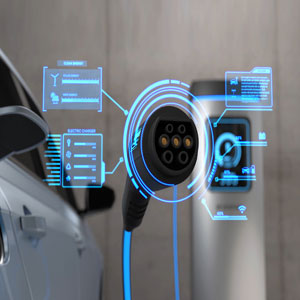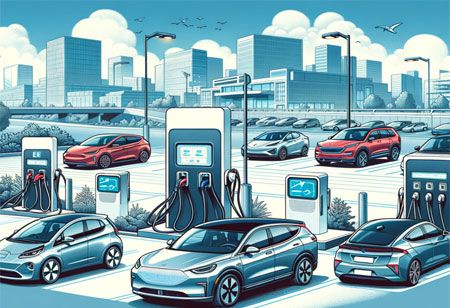
A head of the Union Budget 2025, which will be announced by Finance Minister Nirmala Sitharaman on February 1, the electric vehicle (EV) industry anticipates GST simplification and an inverted GST structure on raw materials. The latest budget, released in July 2024, made no explicit statements about the EV sector.
Unified GST
According to Dinkar Agrawal, Founder, CTO, and COO of Oben Electric, a 5% GST must be applied to all EV components.
"Simplifying the GST structure with a uniform 5 per cent tax across EVs, components, and charging infrastructure is essential to reducing costs and fostering growth," Agrawal said. Currently, 5 percent GST is paid on EVs, EV batteries, and charging infrastructure, while 28 percent GST is levied on spare parts and accessories. Maintenance and repairs for electric vehicles are subject to an 18 percent GST.
Inverted GST Structure & PLI Scheme
An inverted duty structure in GST arises when the tax rate on inputs is higher than the tax rate on output. This issue has an impact on the working capital requirements of the electric vehicle sector. "Resolving the inverted GST structure on raw materials will also ease working capital pressures and encourage sustainable manufacturing," Agrawal informed us.
Furthermore, according to Agrawal, the government should boost domestic EV battery production capabilities by implementing performance - linked incentive (PLI) schemes.
"Performance - linked incentives for battery innovation and indigenous component manufacturing can further strengthen India's Make in-India push, positioning the country as a global leader in EV technology," he added.

To boost EV sales in India, the government is being encouraged to lower financing rates on EVs and provide subsidies to prospective customers.
"On the consumer front, initiatives like reduced interest rates on EV loans and targeted subsidies can make electric vehicles more accessible, bridging the affordability gap," Agrawal said.
Despite no big EV-related announcements in Budget 2024, the Centre unveiled a ₹10,900 crore electric vehicle subsidy scheme in September, known as the PM E-Drive. This is the third phase of the Faster Adoption and Manufacturing of Hybrid and Electric Vehicles (FAME) policy, which has aimed to support the purchase of over 1.6 million electric vehicles in India since 2015.
According to India's climate targets, the country should have a 30 percent market share of electric vehicles by 2030. Agrawal feels that the Union Budget 2025 provides a crucial chance for the Centre to address EV transition concerns by addressing industrial and consumer issues in order to meet the 2030 goal.

.jpg)